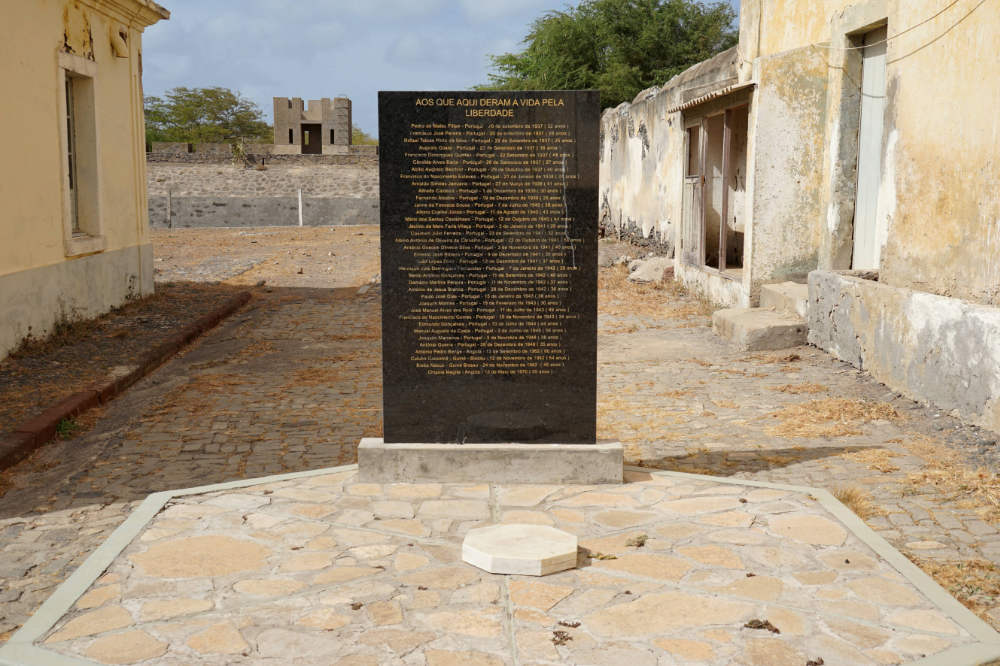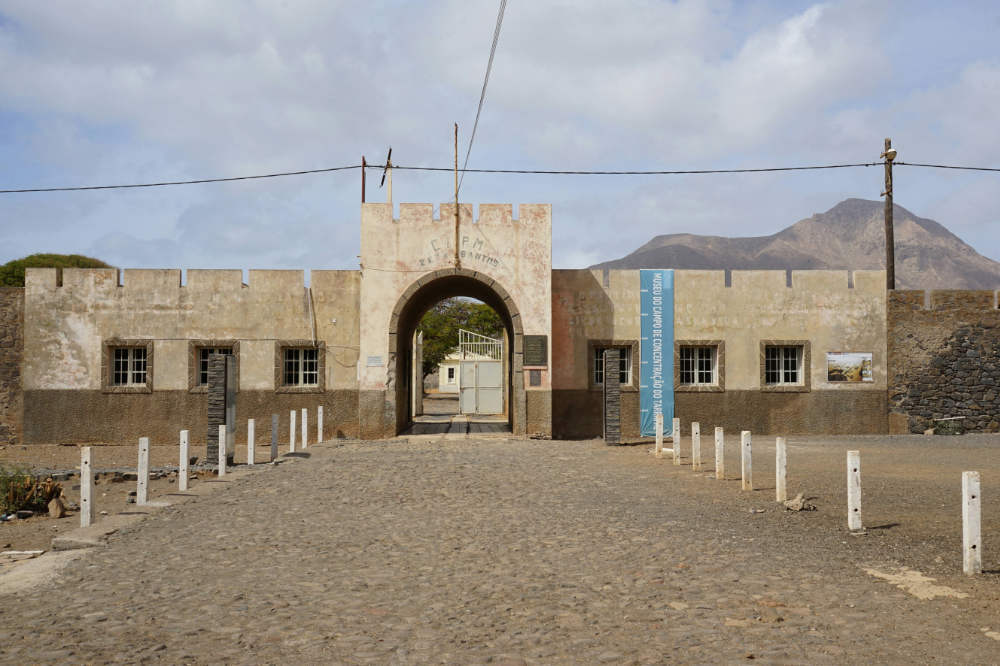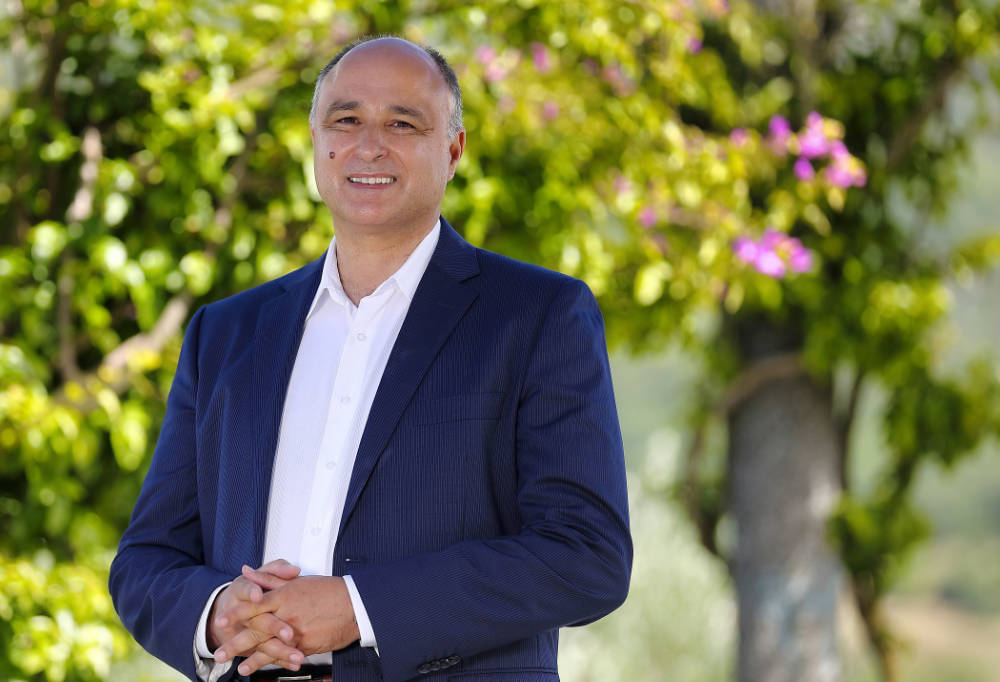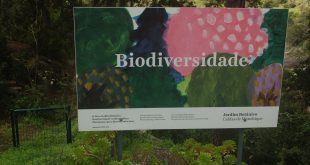Saturday 7th August 2021
An inner compass is the most important thing in life. Is that true? ECO123 is planning to ask the various mayoral candidates fighting the coming local elections about their vision of politics. We had intense discussions about whether we wanted to provide the candidate representing the new fascist party with an opportunity to voice his ideas. As democratic journalists we have our doubts. But yes, in the event we would have some questions ready. For instance this one: „Have you ever visited the island of Santiago in Cabo Verde?“
To holiday on the Cape Verde islands? No, to visit the former concentration camp run by the Portuguese fascists in Tarrafal. Built in 1936, it was inspired by the German concentration camp at Dachau. The location was strategically chosen, being remote and perfect for avoiding witnesses on the one hand, on the other hand with a very unhealthy climate, little drinking water in summer and many mosquitoes in the rainy season, favouring diseases such as malaria and yellow fever. The main objective at Tarrafal, also known as the Camp of Slow Death, was the physical and mental annihilation of the Portuguese and African opponents of the Salazar regime, isolating them from the rest of this world’s silent majority and making them suffer inhuman conditions of imprisonment, mistreatment and barbarity. Do we want to forget those 48 years when we are reporting on Portugal’s new fascist party?
In a first phase, between 1936 and 1954, Chão Bom (Good Ground), as the place was also euphemistically called, was only destined for political adversaries: socialists, communists and republicans, and other dissidents. On 29 October 1936 the first 157 inmates arrived from Lisbon, some of them having participated in the Naval Revolt of 1936. In the first two years, during which the political prisoners were housed in group tents, they were forced to work in extremely high temperatures to build the camp wall and other infrastructure. When the first diseases appeared the only doctor present had no medication to treat the patients, limiting himself to issuing death certificates. Of the 340 political prisoners who passed through the camp, ten per cent died. Two of its most famous victims were Bento Gonçalves, the chairman of the Communist party at the time, and Mário Castelhano, the chairman of the Federation of Trade Unions.
The “Frigideira”, also called “Elimination Chamber” or “Torture Room” by the inmates, was a place of punishment where the prisoners were tortured by depriving them of food and light and exposing them to temperatures between 50 and 60 degrees. The “frigideira” was responsible for the death of 30 inmates and the ill health of dozens others. The current Resistance Museum lists 2,824 days spent in the “frigideira”. At some point the regime didn’t have enough political enemies left, having either eliminated them or sent them home, completely broken in body and spirit. In 1954 the concentration camp was temporarily closed.
In the second phase, after the reopening of the camp on 14 April 1961, the fascist regime started using it to imprison fighters of the national liberation wars from the Portuguese colonies: Angola, Guinea-Bissau and Cabo Verde. 106 Angolans, 100 Guineans and 20 Cape Verdeans came to Tarrafal. The “frigideira” was replaced by the newly-inaugurated “Holandinha” which served practically the same purpose, being “a little higher than a man standing upright, a little longer than a man lying down, a little wider than a man sitting down, with a small metal-grilled window” – and “a veritable oven”. One Angolan political prisoner as well as two Guineans succumbed immediately in this camp.
Following the Carnation Revolution and the end to the dictatorship of the self-appointed New State (Estado Novo) the camp was immediately closed down. Yet it had to wait for 2009 to be converted into „the Museum of the Resistance“. On 14 August 2016 the Cape Verdean government declared the concentration camp of Tarrafal a National Heritage site. In order to honour the anti-fascist struggle 29 October became “Antifascist Resistance Day”.
In Portugal, local elections are taking place on Sunday 26th September, with 308 mayors up for election or re-election. In many districts we are now seeing candidates representing a fascist party, with a good chance of being elected to mayoral office with results far below 30% of votes. In most town councils six or more candidates are vying for this post. In Monchique six candidates have thrown their hat in the ring. ECO123 will be presenting five of them in our next online editions.
 Eco123 Revista da Economia e Ecologia
Eco123 Revista da Economia e Ecologia





